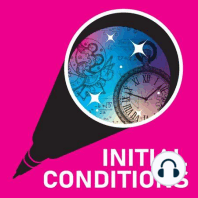46 min listen

Quantum Counterculture
Quantum Counterculture
ratings:
Length:
50 minutes
Released:
Aug 11, 2022
Format:
Podcast episode
Description
Inspired by David Kaiser's 2011 book, How the Hippies Saved Physics: Science, Counterculture, and the Quantum Revival, this episode will cover the discomfort many physicists experienced while grappling with quantum mechanics and how their unconventional methods led to quantum key encryption. Like many Americans of the 1960s and 70s, some physicists took part in questioning traditional institutions. They engaged in philosophical questions of quantum mechanics driven by Bell’s Theorem that revealed entangled particles’ seemingly father-than-light communication could not be explained by any known mechanism. While other physicists put their heads down and calculated, these hippie physicists dabbled in psychedelics, consulted with magicians, attempted to communicate with ghosts through atomic decay, and tried to communicate with each other–telepathically. They also questioned whether Western science's objective observer tradition was sufficient for quantum physics where observing a particle’s behavior changes it. Though some of their investigations may be deemed pseudoscience, there was value in thinking outside the box (or infinite potential well, for the physicists listening) and from their work, we know more about quantum mechanics and its applications.
Released:
Aug 11, 2022
Format:
Podcast episode
Titles in the series (15)
Energy Crises and Climate Change in the 1970s by Initial Conditions: A Physics History Podcast